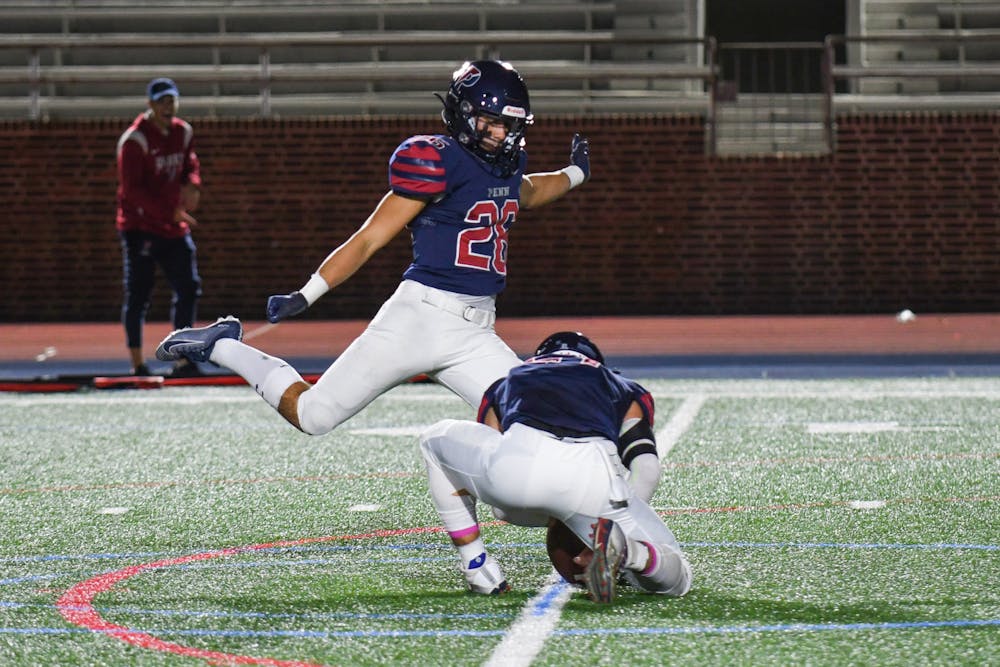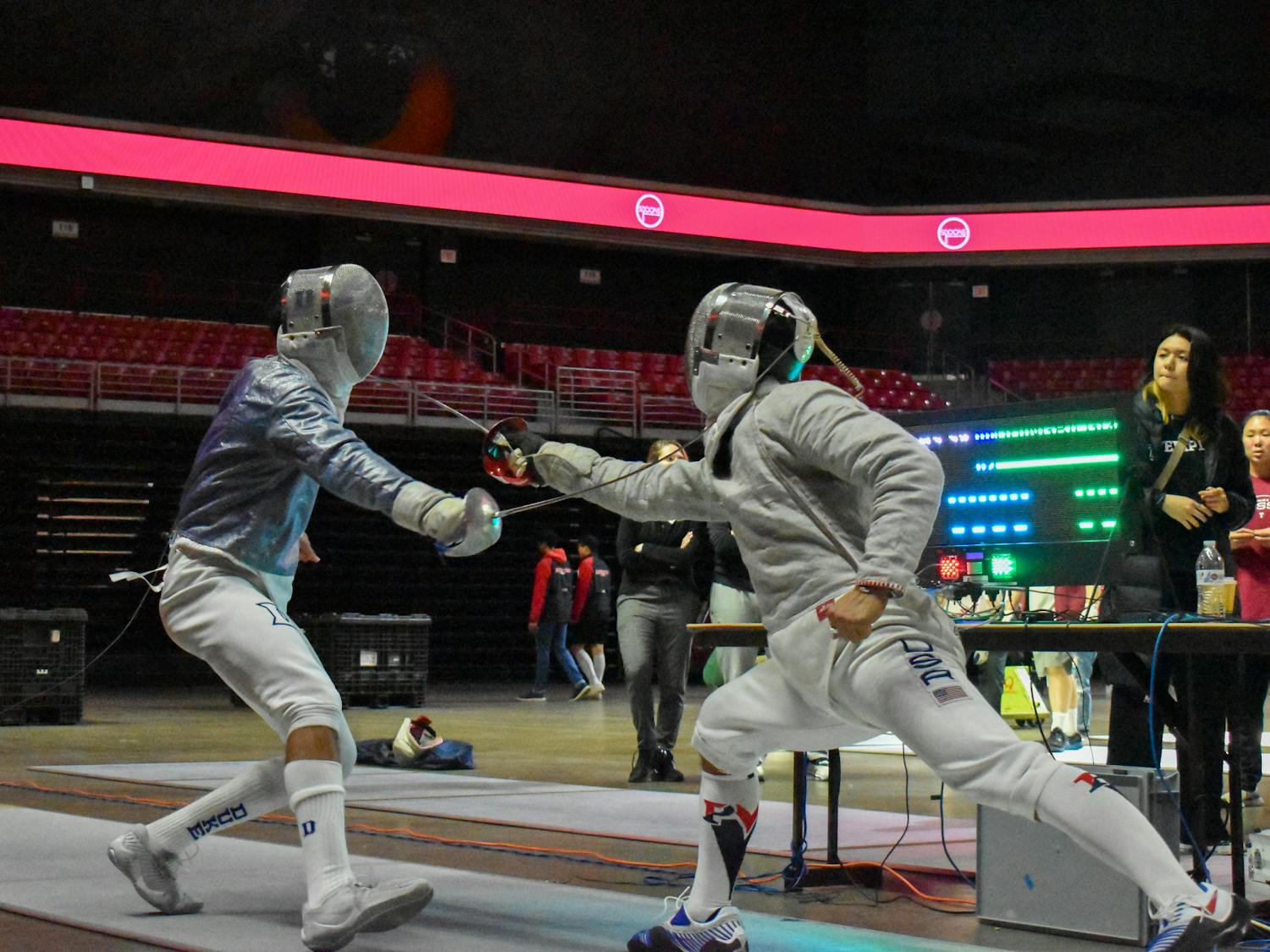In the most recent "Sports Illustrated" rankings of the top high school football teams, schools from Texas occupied three of the top ten spots. The Lone Star State also has multiple high school stadiums costing over $50 million and 70 four-and-five star recruits in the class of 2024. Calling Texas the world capital of high school football would not be a ridiculous claim.
However, if you travel only 140 miles south of Texas to Monterrey, Mexico, you'll find a city buzzing with a similarly big football culture.
“[Football] is actually pretty big down there in Mexico, in the city where I’m from," junior sprint football wide reciever Adrian Montemayor said. "We are very close to Texas, so there’s a big American influence there.”
Montemayor began his football journey at the age of seven, playing club throughout elementary and middle school. But when he got to high school at the American Institute of Monterrey Preparatory School, he found that there was no team for him to join. Instead of giving up the sport, he played for another school in the area as an extended recruit player. As his high school days came to a close, Montemayor hoped to go to school in the United States, but never thought it was possible to play. That is, until he discovered Penn’s sprint football team.
“I first just wanted to apply to Penn because I was interested in the school. I wanted to apply to Wharton," he said. "I’m obviously not big enough to play football on the big team, but when I was applying I was just doing research on the school and I found out that Penn had sprint football, which I didn’t know anything about.”
Montemayor was never offered an official spot on the roster. Rather, he was treated as a preferred walk-on, meaning that if he was able to get into Penn, he would secure his spot on the team. Even after being accepted, though, the journey to becoming a starter did not start immediately. In his freshman year, he played sparsely, barely touching the field; adjusting to learning and playing in a different language was not easy.
“Coming in with English as my second language, it was definitely an adjustment. It was a challenge,” Montemayor said.
However, in the team's second to last game against Alderson Broaddus, an opportunity emerged that allowed Montemayor to showcase his versatility. The Quakers’ starting punter went down, so Montemayor, who had only seen action on defense, stepped up into the role. He booted four balls in Penn's 38-7 victory and would punt again five more times in the final game of the season.
RELATED:
Two wins, two losses, two games left: Sprint football eyes CSFL South division title
A look into Penn sprint football's recruiting process
If the story ended here, people might still be impressed, but Montemayor wasn’t ready to quit. That offseason, he put in the work. Montemayor said that when he entered the program, he only weighed around 158 pounds, far below the 178-pound limit for sprint football.
“Back in Mexico, the lifting culture is pretty small compared to what we have here in America," he said. Once he got to Penn, he started hitting the weights more than ever alongside his teammates. His hard work didn’t go unnoticed. According to coach Jerry McConnell, “he was committed to becoming the player that he is today.”
Montemayor’s offseason paid off immediately in the first game of 2022, once again against Alderson Broaddus. He recorded an interception and five tackles, while also punting and kicking the ball off. It was the first time that Montemayor had seen serious playing time as both a punter and as a safety. One game later, he hit his first career field goal.
“The biggest thing is the kids have confidence in him," McConnell said. "They believe that whenever he is going to punt or kick or play defense, that he’s going to get the job done.”
However, Montemayor’s versatility does take its toll.
“I would say the biggest challenge is usually staying strong with your kicks as the season progresses because with all the running and tackling and moving around and also trying to kick," Montemayor acknowledged, "my right leg usually gets pretty sore during the week.”
But if he was fatigued last year, it surely didn’t show. He finished the season with 32 total tackles, two interceptions, five pass breakups, a forced fumble, and fumble recovery. As a kicker, he went 4-4 on field goal attempts, while punting for a total of 1139 yards and another 621 on his kickoffs. His efforts earned him CSFL Special Teams Player of the Year and an All-CSFL honorable mention.
This season, Montemayor picked up right where he left off. In week one against Chestnut Hill College, he nailed a 22 yard field goal, forced a fumble, and recovered one as well. The value of his versatility showed up later that game when he recorded his first career blocked punt.
“Sometimes people make the mistake of aiming towards where the punter is, rather than where he’s going to be when he actually punts," he said. "The punter usually gets the punt and then takes a couple of steps forward before he actually punts, so my aiming point was actually where I knew he was going to be punting from rather than where he was starting.”
His performance earned him his third career CSFL Special Teams Player of the Week award. It would not be his last, however, as he added another one last weekend in Penn’s win over Saint Thomas Aquinas.
With the accolades piling up, it would be remiss to forget where Montemayor’s journey began: From a freshman who struggled with adjusting to a new language to becoming Penn sprint football's "general on defense," as McConnell would put it.
“Coming from Mexico, it’s amazing that he came here and acclimated himself the way that he did. He is really a special young man,” McConnell added.
As the general, Montemayor will look to guide the 2-2 Quakers towards a CSFL South Division title with two games left in this season.









